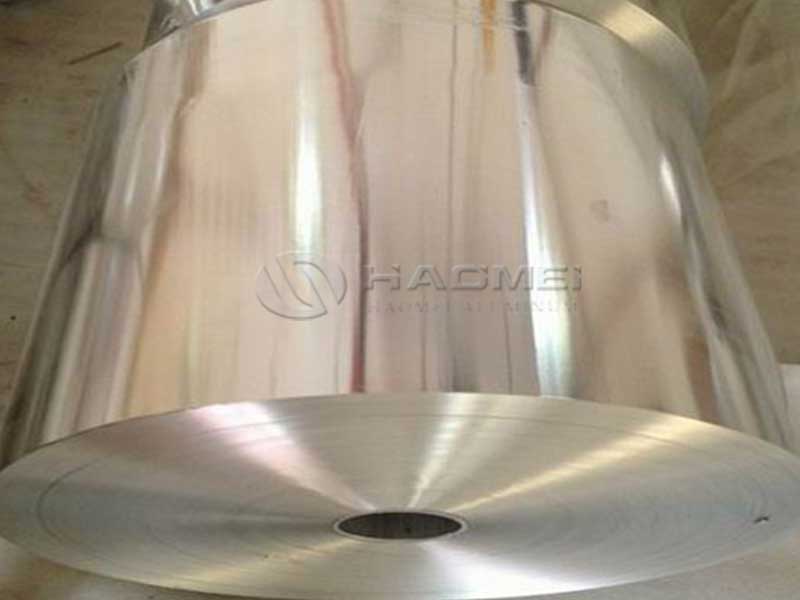Aluminium Foil Pharmaceutical Foil Alloy 8079
In the realm of packaging materials, aluminium foil has emerged as a pivotal element. Among the numerous types of aluminium foil available, the Pharmaceutical Foil Alloy 8079 stands out remarkably. Its unique properties and versatility make it particularly suited for the pharmaceutical industry, where safety and efficacy are paramount.
Alloy 8079: The Apex of Pharmaceutical Applications
Aluminium Alloy 8079, a composition characterized mainly by its purity and thinness, sees widespread application in the manufacture of pharmaceutical and healthcare packaging foil. This alloy is noteworthy due to its excellent barrier properties, corrosion resistance, and mechanical performance. These attributes make it an ideal choice for shielding sensitive pharmaceutical products from moisture, light, and air intrusion, thereby extending their shelf life.
Specifications of Alloy 8079
Alloy 8079 is engineered to adhere to strict parameters, ensuring it meets the necessary quality standards crucial for the pharmaceutical industry. The following specifications typically define the community standards for Alloy 8079:
| Specification | Value |
|---|---|
| Alloy Designation | 8079 |
| Composition (wt%) | Al (Min. 93%), Cu, Fe, Mg, Si <0.5% |
| Thickness | 10 to 120 microns |
| Width | Up to 1400 mm |
| Yield Strength (MPa) | 220 - 290 |
| Elongation (% at Break) | 12 - 20 |
| Purity level | Min. 99.5% |
Implementation Standards: Ensuring Quality Compliance
When it comes to the pharmaceutical and healthcare industry, compliance with rigorous standards is non-negotiable. Aluminium foil alloy 8079 adheres to various regulatory mechanisms governing its production and use, with kosher, FDA, and EU standards highly relevant.
Aluminium foil 8079 is compliant with the:
- Food and Drug Administration (FDA) regulations ensuring safety when used for food and pharmaceutical packaging.
- European Council Directive concerning packaging material to prevent any possibility of isotropic reactions or contaminations in pharmaceutical applications.
Alloy Tempering: Crafting Excellence
Tempering has a significant effect on the properties of aluminium foils. Typically categorized under different tempers such as O (annealed), H22, H24, and H28, the process greatly enhances the foil’s mechanical characteristics, especially its hardness, ductility, and toughness. The recommended temper for Alloy 8079 is H18 or H24, providing a pre-stressed yet adaptable frame that allows the foil to connect with various applications while simultaneously offering tensile strength.
| Tempering Condition | Mechanical Attributes |
|---|---|
| O (Annealed) | Ultra-soft; high ductility |
| H22 | Medium-soft; major deformability |
| H24 | Major formability with a good balance |
| H18 | High strength; limited ductility |
Chemical Properties: A Survey of Compatibility and Stability
Equipped with excellent stability due to its low reactive tendencies, Aluminium Foil Alloy 8079 maintains its integrity in various environments. Here’s an insight into its chemical properties:
| Property | Value |
|---|---|
| Density | ~2.7 g/cm³ |
| Melting Point | ~660 °C |
| Electrical Conductivity | High conductivity rated |
| Chemical Resistance | Resistant to weak acids and bases |
| Non-toxic Safe-for-food | Ascertained |
Beyond metallic attributes and compliance standards lies an interesting facet: sustainability. As nations tilt towards eco-consciousness, Aluminium Foil Alloy 8079 offers multiple layers of sustainability, being 100% recyclable while contributing no harmful byproducts during this lifecycle process. This rejuvenation grants a circular economy in packaging applications, reflecting a more holistic viewpoint.
Further integrations with technological advances like reducing film thicknesses or varying alloy compositions offer flexibility else unmet, establishing further applications to combat medication counterfeiting by integrating anti-counterfeit properties.
https://www.alusheets.com/a/aluminium-foil-pharmaceutical-foil-alloy-8079.html




